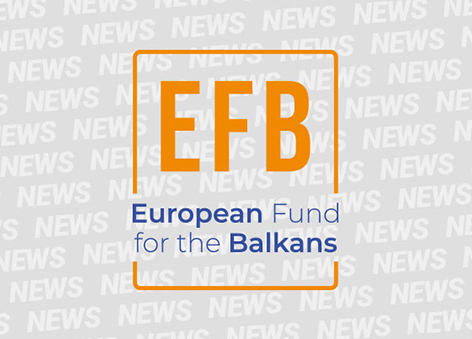
12.07.2013 All News
The EFB is pleased to announce that two [highlight color='#587b7c' text-color='#ffffff']EFB Community [/highlight] members attended the 2013 Summer School in Comparative Conflict Studies that took place at the Faculty of Media and Communications in Belgrade, from 1-8 of July 2013 in Belgrade. Miguel Nunes Silva and Dariya Pavlova were among the 60 students from 20 countries, that participated in the one week activities of the programme.
The 4th Summer School in Comparative Conflict Studies organized by the Centre for Comparative Conflict Studies provides a learning opportunity for students interested in the study and analysis of societies in and post-conflict. Interdisciplinary in nature, drawing from the fields of conflict analysis and resolution, history, philosophy, sociology and international relations, the Summer School in Comparative Conflict Studies provides students with an interactive learning experience, utilizing frontal lectures and class discussions focusing on the comparative conflict analysis of different case studies.
After the call for applications, the European Fund for the Balkans provided the full scholarship for the two selected EFB Community members. The applicants had an opportunity to choose from four courses by prominent lecturers:
1.THE POLITICS OF LAND AND IDENTITY: STATES AND MINORITIES IN CONFLICT
Prof. Oren Yiftachel (Ben-Gurion University -Beer-Sheva/Israel)
2.INTERNATIONAL INTERVENTION IN A GLOBALISED WORLD
Dr. Maxine David (University of Surrey, UK)
3. THE ROLE OF SOCIAL MEMORY STUDIES IN CONFLICT ANALYSIS AND TRANSFORMATION
Dr. Orli Fridman (FMK & SIT study Abroad, Serbia);
4. FROM THE DISCOURSE OF BROTHERHOOD AND UNITY TO THE DISCOURSES OF EU INTEGRATION: THE CASE OF “TRANSITION” IN SERBIA
Dr. Jelisaveta Blagojevic (FMK, Serbia).
The CFCCS is a research and educational centre at the Faculty of Media and Communications (FMK), Belgrade Singidunum University. The Center for Comparative Conflict Studies (CFCCS) is a research and educational centre aiming to become a space in which people can engage in the study of the dynamics of conflicts in a comparative framework. While most scholars tend to exceptionalize the conflicts they study, the focus of the CFCCS is to work within a comparative framework that highlights broader dynamics of societies in conflict. Interest and projects are directed towards the conflicts in the former Yugoslav states, the Israeli-Palestinian conflict, and other conflicts worldwide.






